Conference Keynote Speaker I
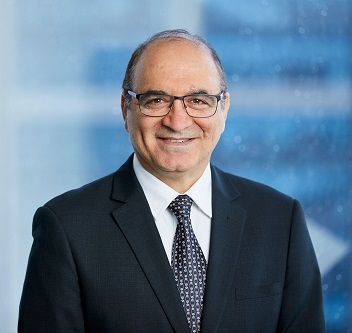
Dean
Sharafi
Australian Energy Market Operator (AEMO),
Australia
Speech Title:
Challenges and Opportunities of Energy
Transition
Abstract:
Modern power systems are continuously
integrating high levels of renewable energy and
are facing several challenges due to this
evolution. Power grids were designed based on
concepts that are continuously changing and our
operation must adapt to the new paradigm. We are
seeing power systems shifting from synchronous
generation to inverter-based ones, we are moving
from a small number of generators located in
certain parts of the grid, to very high number
of generators located in many parts of the power
system, we are shifting from concentrated energy
resources to consumer energy resources, also
known as DER. While these changes have brought
about many opportunities, they have resulted in
the need to understand how these changes are
affecting the power systems and the way we
operate them. There are many aspects to be
considered and the industry resources need to
join with research community to rise to these
challenges and use the opportunities created.
This talk will focus on challenges and the
potential solutions going forward.
Bio:
Dean Sharafi is the Strategic Advisor
on energy transition at the Australian Energy
Market Operator (AEMO). Dean holds a degree in
Applied Physics, a degree in Electrical
Engineering and a degree in Business Management.
He has around 30 years of experience in power
system engineering which includes Power System
Protection, High Voltage Systems, Asset
Management and Power System and Electricity
Market Operation.
He is a member of Australian Institute of
Management, Cigre, Engineers Australia and a
senior member the IEEE. Dean has been actively
involved with IEEE Power and Energy Society
initiatives and Cigre Working Groups over the
last two decades and has served as a member of
the Governing Board of the IEEE PES from 2017 to
2022.
Dean has published many papers on power system
protection, condition monitoring, asset
management and power system operations. He
lectured for a decade as a Sessional Academic on
Power System Earthing at Curtin University in
Western Australia.
Dean is an Associate Editor for the IEEE
Transactions on Power Systems Journal and an
IEEE Distinguished Lecturer.
Dean is also the author of his memoire “The
Unwilling Revolutionary.”
Conference Keynote Speaker II
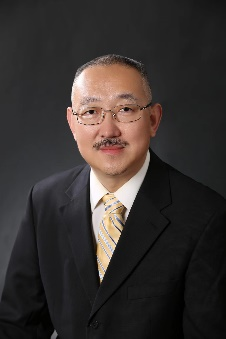
Song Ci
Tsinghua University, China
Speech Title:
Hundred-Megawatt Level Dynamic
Reconfigurable Battery Energy Storage Technology
Abstract:
As a core infrastructure for flexible
and efficient temporal and spatial energy
transfer, battery energy storage plays an
irreplaceable role in the current global
low-carbon energy transition revolution, with a
massive application scale and rapid continuous
development. However, large-scale battery energy
storage systems have long faced challenges such
as massive differential battery management,
coordinated control, and safe operation. The
essence of these challenges lies in the
short-board effect brought about by fixed
series-parallel battery pack structures.
Innovating battery pack modes and energy
management mechanisms through information-energy
cross-fusion technology and innovative module
technology is an important way to solve these
problems. Addressing the pain points of poor
efficiency, safety, economy, and compatibility
of energy storage systems caused by fixed
series-parallel battery packs, it is necessary
to innovate an energy information processing
mechanism that fundamentally eliminates the
short-board effect of battery energy storage
systems, clarify the coupling law of the
intrinsic attributes and operating
characteristics of dynamic reconfigurable
battery energy storage systems, and propose an
inherently safe energy control method. This
report will focus on the series of key
technologies such as efficient system
integration, optimized operation, intelligent
operation and maintenance, as well as the
development of hundred-megawatt-hour dynamic
reconfigurable battery energy storage system
equipment and current work progress.
Bio:
清华大学电机系研究员,博导,国家级人才,IEEE Fellow,AAIA
Fellow,信息能源教育部-中国移动联合实验室主任,新型电力系统运行与控制全国重点实验室电化学储能高效集成与控制团队负责人,德国慕尼黑工大Global
Visiting
Professor,国家能源局中国能源互联网发展战略研究课题组首席科学家,国家能源局能源互联网行动计划预研课题组负责人,曾任美国内布拉斯加大学林肯分校终身教授,中科院特聘研究员。长期从事复杂系统建模、控制与优化理论及其在互联网和大规模储能领域应用技术的研究,迄今已在上述领域发表论文400多篇,300多项专利申请,主持承担国家自然科学基金重点项目/国家重点研发计划/863/科技支撑/国家科技重大专项等国家级项目,是多个国际顶级期刊的编委或特邀编委。慈松博士在国际上率先提出了“数字能量处理与计算”理论,开创了“动态可重构电池”这一前沿交叉领域,先后荣获2022年中国“产学研合作创新”个人、2023全球创业大赛(HICOOL)总决赛一等奖(个人)、2021/2023年日内瓦国际发明展金奖和2021年度中国信息通信领域十大科技进展之一等奖励。
Conference Invited Speaker I
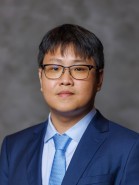
Qianzhi Zhang
Zhejiang University, China
Speech Title:
TBA
Abstract:
TBA
Bio:
Qianzhi Zhang is
the ZJU100 Young Professor at the College of
Electrical Engineering, Zhejiang University. He
received the Ph.D. degree in electrical
engineering from Iowa State University, Ames,
IA, in 2022. He was an Ezra Systems postdoctoral
fellow at Cornell University from 2022 to 2023,
and an Assistant Professor at University of
Alabama from 2023 to 2024. He was the recipient
of the outstanding reviewer of IEEE TRANSACTIONS
ON POWER SYSTEMS in 2019, 2022 and 2023, and
IEEE TRANSACTIONS ON SMART GRID in 2021. He is
an Associate Editor of IET SMART GRID. His
research interests include voltage/var control,
power/energy management, system resilience
enhancement, vehicle electrification, and the
applications of advanced optimization and
machine learning techniques in power system
operation and control.
Conference Invited Speaker II
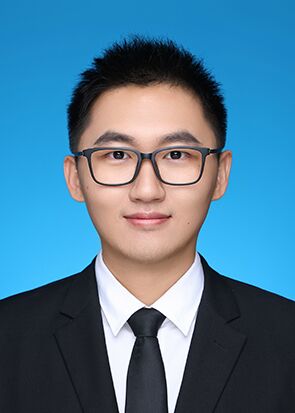
Yifan Su
Chongqing University, China
Speech Title:
TBA
Abstract:
TBA
Bio:
Yifan Su received
the B.Sc. and Ph.D. degrees in electrical
engineering from Tsinghua University, Beijing,
China, in 2019 and 2024, respectively. He is
currently an Associate Professor with Chongqing
University, Chongqing, China. His research
interests include distributed energy management,
energy sharing market, and robust dispatch in
power systems.
Conference Invited Speaker III
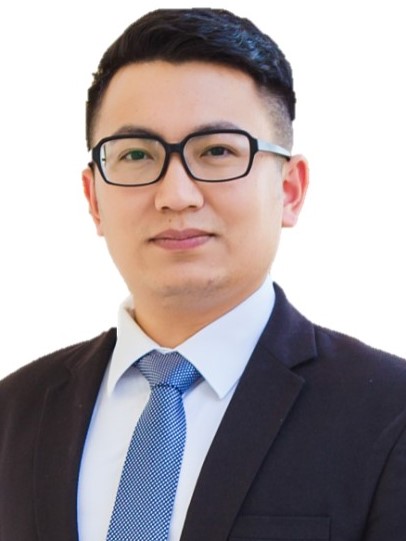
Yang Liu
South China University of Technology, China
Speech Title:
TBA
Abstract:
TBA
Bio:
Yang Liu,
associate professor, PhD supervisor, holds a
Ph.D. from South China University of Technology
and was a visiting scholar at the University of
Liverpool in the UK. He has long been engaged in
research on the solution of the transient
stability domain of attraction of power systems
and transient stability control methods. He
proposed the structure-preserving
dimensionality-reduction mapping theory for the
attraction domain of high-dimensional systems,
significantly improving the computational
efficiency of the attraction domain boundary of
large-scale systems. He put forward the
distributed maximum transient energy control
method and the stability proof method for
general hybrid switching control systems, and
pioneered the switching Lyapunov function
stability theory for converters. He also
proposed the maximum transient energy control
method for power systems, solving the problem of
rapid stability control of power systems under
emergency fault conditions.
He was selected for the "Young Talent Support
Project" of the Chinese Society for Electrical
Engineering and was named one of the "100
Innovative Doctors and Post-doctors in Guangdong
Province". He presided over the National Natural
Science Foundation Fund, the Special Fund of the
China Postdoctoral Science Foundation, the
first-class funding of the General Project of
the China Postdoctoral Science Foundation, the
Guangdong Offshore Wind Power Joint Fund, the
Basic and Applied Basic Research Project of
Guangzhou, and the Fundamental Research Funds
for the Central Universities. As the first
author, he published a monograph by Springer and
more than 40 SCI-indexed papers.
At present, he serves as a young editorial board
member of CSEE Journal of Power and Energy
Systems and Protection and Control of Modern
Power Systems. He has won the Outstanding
Doctoral Dissertation Award of South China
University of Technology, the Outstanding
Journal Paper Award of the Chinese Society for
Electrical Engineering, the Outstanding Paper
Awards of CSEE Journal of Power and Energy
Systems.
Conference Invited Speaker IV
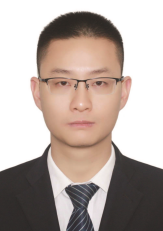
Feixiong Chen
Fuzhou University, China
Speech Title:
TBA
Abstract:
TBA
Bio:
陈飞雄,博士,福州大学副教授,硕士生导师,福建省C类高层次人才,研究方向为综合能源系统能流计算与协同控制等。近年来承担国家自然科学基金青年项目、福建省自然科学基金青年项目、福建省专业学位研究优秀教学案例项目。获2022年度福建电力优秀青年科技人才奖、2021年度福建电力科学技术进步三等奖(排名第二)。
担任电力工程系副主任兼智能信息工程专业秘书、电力系统及其自动化硕士学位点负责人,兼任中国电工技术学会高级会员,中国电机工程学会高级会员,福建电机工程学会电力系统专业委员会委员,福建能源电力专家库专家,《供用电》青年编委。
获评2023和2024年度《中国电机工程学报》优秀审稿专家、2023和2024年度《电力自动化设备》优秀审稿专家、2023和2024年度《电网技术》突出贡献专家、2024年度《高电压技术》优秀审稿专家、2024年度《供用电》优秀审稿专家、2024年度Best
Reviewer for The 16th Asia-Pacific Power and
Energy Engineering Conference、2024年度Excellent
Reviewer for Journal of Modern Power Systems and
Clean Energy、2024年度香港机械工程师学会(HKSME)优秀审稿人、2020年度
Outstanding Reviewer for IEEE Transactions on
Sustainable Energy、2019年度 Best Reviewer for IEEE
Transactions on Smart Grid。
Conference Invited Speaker
V

Yizhou Zhou
Hohai University, China
Speech Title:
TBA
Abstract:
TBA
Bio:
Yizhou Zhou is an
associate professor and a master’s supervisor at
the School of Electrical and Power Engineering,
at Hohai University. He is also the deputy
director of the Integrated Energy System
Professional Committee of Jiangsu
Electrotechnical Society. His main research
interests focus on integrated energy systems,
virtual power plants, and robust optimization.
He has been selected for the Jiangsu Province
Youth Science and Technology Talent Support
Project. He has been approved for a series of
research projects, including the National
Natural Science Foundation of China and the
Natural Science Foundation Project of Jiangsu
Province. He has been awarded the 2023 Electric
Power Construction Science and Technology
Progress Award (ranked 1st), and the nomination
award for the 2022 Excellent Doctoral Thesis of
China Electrical Engineering Society. He has
published over 30 papers in SCI and EI journals
as the first or corresponding author and
authorized 15 national invention patents as the
first inventor.
Conference Invited Speaker
VI
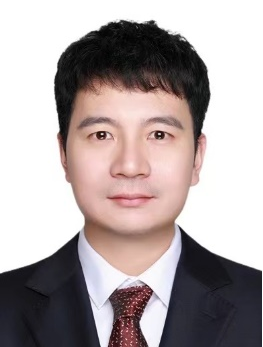
Yujun Guo
Southwest Jiaotong University, China
Speech Title:
TBA
Abstract:
TBA
Bio:
郭裕钧,西南交通大学电气工程学院,副教授、博士生导师。长期从事研究方向为牵引供电设备外绝缘、复杂环境线路安全与防护,近年主持国家自然科学基金3项(区域联合重点、面上、青年)、四川省重大科技专项课题、四川省自然科学基金、中车等科技项目16项。担任IEEE
PES成都分会副主席、CIGRE
B2中国委员会委员。获四川省科技进步一等奖(排名3)、中国电工技术学会科技进步一等奖(排名4)、詹天佑铁道科学技术奖青年奖。
Conference Invited Speaker
VII

Zhengcheng
Dong
Wuhan University of Technology, China
Speech Title:
TBA
Abstract:
TBA
Bio:
Dr. Dong is
currently an Associate Professor at the School
of Automation, Wuhan University of Technology.
His research focuses on the resilience of
cyber-physical power systems and the application
of AI algorithms. He has authored over 40
SCI/EI-indexed academic papers and holds more
than 10 patents. Dr. Dong has led 10 research
projects, including those funded by the National
Natural Science Foundation of China, the China
Postdoctoral Science Special Foundation, and the
Natural Science Foundation of Hubei Province. He
has received 5 research awards, including the
Second Prize of the Guangxi Science and
Technology Progress Award and the best paper
finalist of IEEE ICPS 2023. Dr. Dong has been
recognized as one of the top 5% highly cited
scholars in CNKI and has been selected for the
Xuchang City Talent Program. He has also
actively contributed to the academic community
by serving as a guest editor, young editorial
board member, special session organizer,
technical committee member, and chair for
several journals and conferences. Additionally,
he serves as an active reviewer for over 30
peer-reviewed journals.
Conference Invited Speaker
VIII
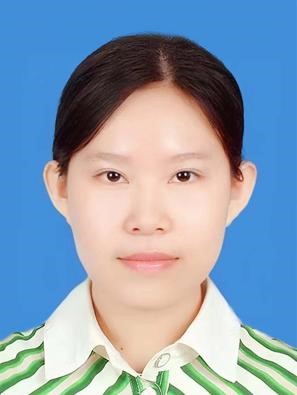
Siting Dai
Guangzhou City University of Technology, China
Speech Title:
TBA
Abstract:
TBA
Bio:
Dr. Siting Dai is
a faculty member at Guangzhou City University of
Technology, specializing in the risk assessment
of electricity market derivatives, trading rules
for renewable energy-based electricity, and
abnormal analysis of medium-to-long-term power
markets. Dr. Dai holds a PhD in Finance from
City University of Macau, an MSc in Finance from
Fordham University, and a Bachelor's degree in
Economics from the University of Macau.
Dr. Dai has a strong research background in
energy finance and power market analysis. They
have published extensively in high-impact
journals such as Energy Reports, Electronics,
and Energies. Their work includes contributions
to topics such as electricity market margin
determination, hydrogen energy integration into
power systems, and business model analysis for
high-reliability photovoltaic storage
microgrids. Their research on electricity
futures markets, particularly in designing
margin methods that account for power factor
risks. Dr. Dai has also made significant
contributions to the understanding of energy
storage penetration rates and power quality
disturbances, publishing in top-tier journals
and presenting their findings at major
international conferences.
In addition to their academic work, Dr. Dai
serves as the Deputy Secretary-General of the
Macau International Energy Technology
Association and has been actively involved in
energy sector initiatives. She was also a
keynote speaker at ICPRE 2024 and will continue
to contribute to the field through academic
collaborations and industry engagements.
Conference Invited Speaker
IX

Hongyu Zhu
Inner Mongolia University of Technology, China
Speech Title:
TBA
Abstract:
TBA
Bio:
Hongyu Zhu, a
lecturer at Inner Mongolia University of
Technology, has been selected for the first
batch of the China Association for Science and
Technology's Young Talent Support Program
(Doctoral Special Project). Her research focuses
on modeling and optimal operation of
multi-energy coupled new energy systems, as well
as collaborative response and regulation
technologies for supply-demand flexible
resources. She has presided over one scientific
research project in Guangxi Province and
participated in four national and
provincial-level projects. She has been awarded
the First Prize for Demonstration Scientific and
Technological Achievements at the Comprehensive
Smart Energy Conference and has six
authorized/applied national invention patents.
She has published over 10 high-level SCI papers,
including two ESI top 1% highly cited papers.
She has served as a session chair at an IEEE
international conference in her field and acts
as a reviewer for multiple academic journals.